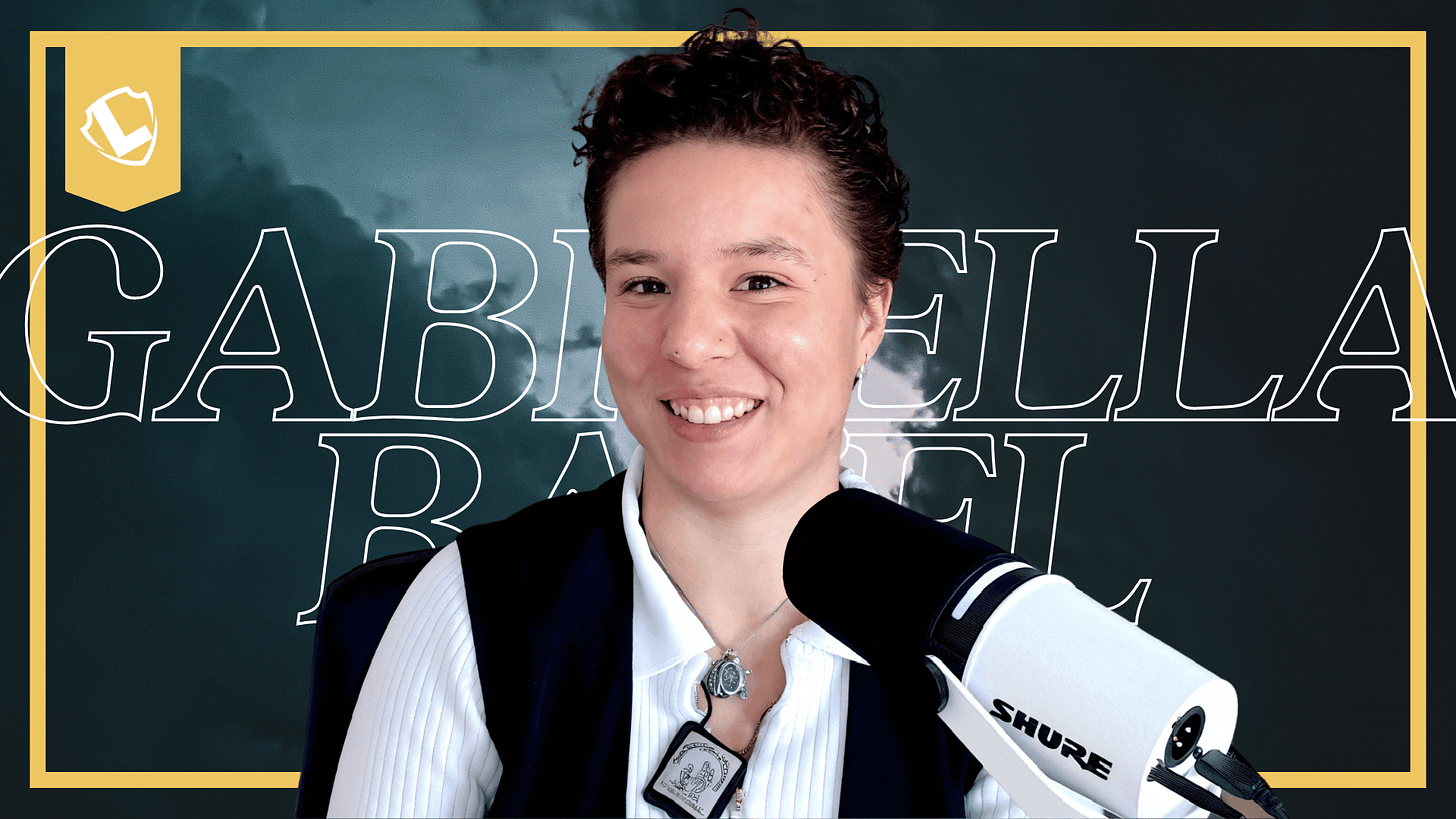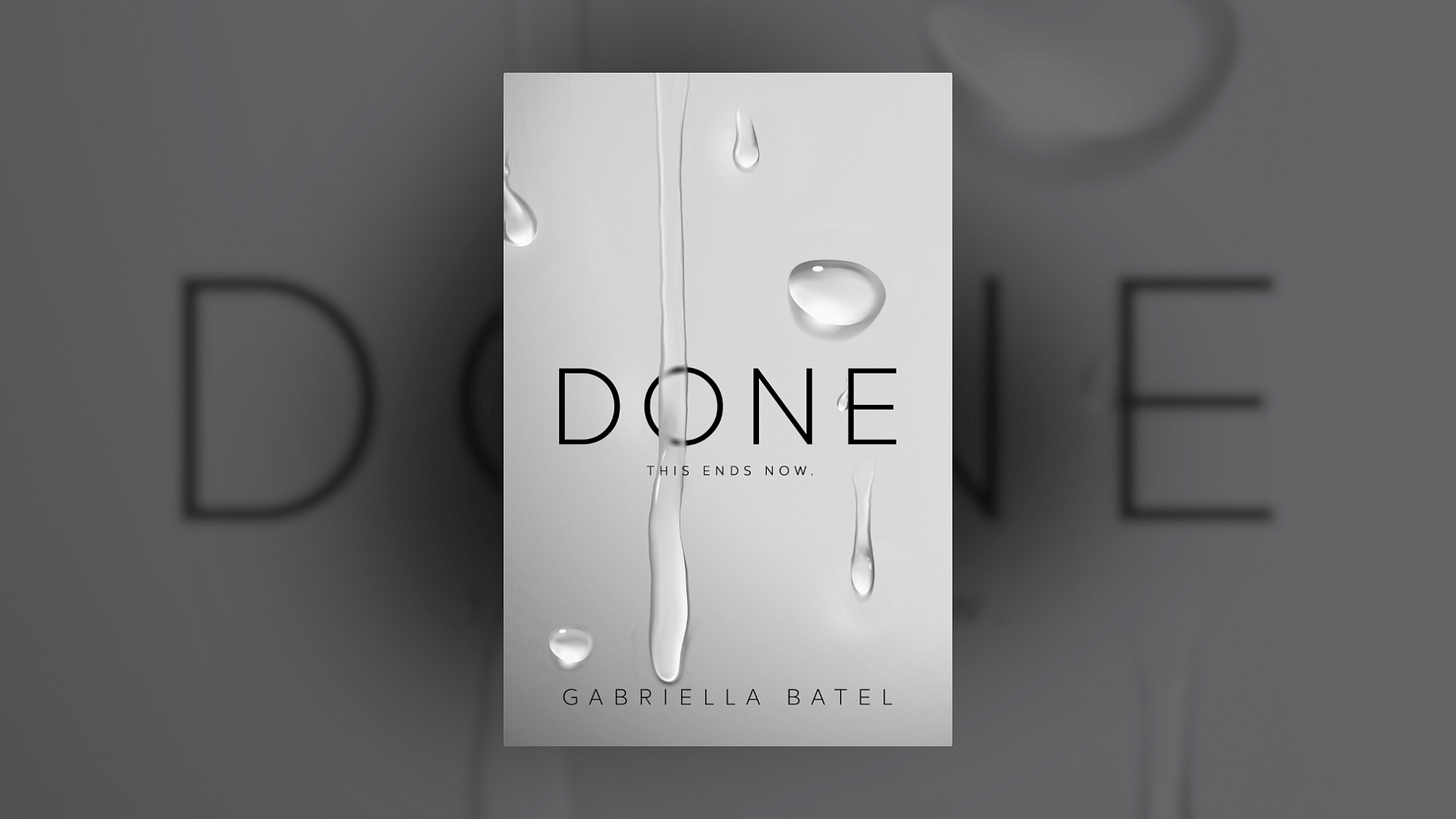Dark, Deep, and Devastatingly Good: Gabriella Batel on Faith, Fantasy, and the Power of Storytelling
From saber-toothed deer to Death as a protagonist—her stories are anything but ordinary. Meet Gabriella Batel, author and LegendFiction mentor
Alright, you’ve gotta meet Gabriella. Her writing style? She calls it "leechcraft"—yeah, as in old-school, slightly creepy, but oddly effective healing. It’s dark, messy, and maybe even a little unsettling, but at the core, it’s all about bringing restoration.
Ever heard of a tree that bleeds or a saber-toothed deer? She’s got those in her research file. And her latest WIP? A mystery-fantasy mashup where Death himself is on a mission to save his sister. Oh, and did I mention it’s also a personal reflection on scrupulosity and faith?
So, how does she fight burnout? What’s the trick to crafting an emotional gut-punch of a scene? And what’s the most unforgettable feedback she’s ever received? Trust me, you’ll wanna dive into this one.
How would you describe your writing style, and what influences formed it?
Ooh, good question. If I were to summarize it in one word, I'd go for... leechcraft.
Let me explain. Leechcraft is an old term for the art of healing or medicine, coming from doctors' old practice of using leeches to bleed patients. That image gives you a pretty good idea of my writing. It's all about healing, but it's not pretty. It's slimy and bloody and comes from the bottom of a swamp. It can feel like being bitten. It doesn't always work the way you expect. And it's a little eldritch, vespertine, and bewitching.
But that doesn't change the fact that healing is the end goal—it's meant to soothe your soul a little bit, whether because of the message inside or just because, sometimes, you just want to listen to something pretty.
As for influences, I'd say that the biggest one is the book What Beauty There Is by Cory Anderson. It is my favorite book of all time, it was the first one ever that I really fell in love with, and it was the guide and goal for me right as I was seriously beginning my own writing journey. It taught me how deep even a thriller story could reach, how majestically it could be written. I haven't been the same since.
What is the weirdest thing you learned while researching or writing your work in progress?
Are you sure? Okay... You can cry without eyeballs, but not without eyelids. So my character's out of luck.
Another is that there is such a thing as a tree with red, flowy sap, so when you chop it down, it basically bleeds profusely. It's called a bloodwood tree. Also, there are saber-toothed deer—they are called musk deer, and they have freaky fangs.
What is your current WIP about and why does it matter to you?
Back in 2021, I wrote a Zoom play. It was... mmm... how do I phrase this? It was my first play. And we were college freshmen. With net zero experience or instinct. So, it was—let's say it was a fun, goofy time!
Despite the inexplicable lack of Oscar awards, we really did have a good time, and I loved the story, so I kept fiddling with it in my mind. I wrote a short story that my mom read, and she loved the concept. That's my WIP, Ending! It's about Ending, who is Death and Night itself, and the eldest Element.
The youngest Element is his baby sister, and even though she's meant to be immortal, she's inexplicably gravely ill. He thinks it's his fault until he realizes poison is involved—and now he's going to scour the world for both the cure and the assassin, and there will be Death to pay when he finds them.
It's very special to me in a number of ways. One, it's a special project for my mom. Also, she's SO good at guessing the bad guys in mysteries, so I'm hoping I've concocted one that's going to catch her off guard.
Two, it's my first dive into an actual mystery AND into epic fantasy, so it's a brand new adventure of uncharted waters, and I want to knock it out of the park!
Three, I've come to realize that the main character has been struggling with the same thing as me. For as long as that poor guy has been around, we've both been struggling with some version of scrupulosity. He's Death itself, and is so afraid to touch anyone because he's afraid he's going to poison them—even though he won't, that's not how the magic works. I, up until relatively recently, was deathly afraid to offend my Faith—even though that's not how the Faith or God work. (Fun fact: that parallel wasn't on purpose. It just kind of happened, and I discovered it later.) God has done some leaps-and-bounds healing for me over the past year or two, so now I get to take that know-how and get my sweet boy Ending to that same place.
How do you avoid burnout from all the pressure of being an author, and get back your creative spark?
In total transparency, I'm not sure I've unlocked the secret to avoiding burnout completely—it's more like I've gotten really good at rolling with it. I'm at breakneck pace for a while, then realize I'm getting tired, and I give myself permission to ease back.
Books need time. They need marinating time. They need vintage time. Those tired moments are a good time to let the flavor soak. Smaller word count per day. A couple days off.
Also, I've learned not to hyperfixate on only one story. Sure, I have my major WIP and a deadline, but to keep the juices flowing, I daydream other projects, maybe jot down a few names, words, outline ideas. I find new music and animatics and books, and soaking in so much storytelling gives me the energy to keep chipping away at mine.
And, of course, most importantly, let God copilot. That takes SO much pressure off. Do a quick prayer before you write, telling him that you're good with whatever flows out of you today. Not much? No problem. An entire ten pages? Sweet! Whatever comes, comes, and you know He's got you. Plus, remember that each time you write, He's giving you a little piece of Him that LITERALLY NO ONE ELSE has ever seen before. That turns the writing from a slog to opening up a gift box.
What is the most difficult part of writing (a book or a story), and how do you handle it?
Hands down, drafting the emotional scenes. It's so hard because, picture an emotional scene in a movie. The scriptwriter, director, and actors have to hit it just right: if any one of them is overdramatic, it's hammy. If any one of them is underdramatic, it falls flat and is so disappointing.
Now picture being the scriptwriter, director, and actor all at once. (John Krasinksi, bless your heart.) You start with literally nothing, a cursor on a white screen, and have to come up with something that elicits that much of a visceral reaction, and it all depends on you.
Now, am I putting an amount of pressure on myself that is utterly unnecessary, seeing as I can revise as much as I want? Yes, absolutely. But the other tricky part is that I'm emotionally invested in theses scenes. I want them to turn out just right because I want to get that gut punch as well. I don't want it to be cheesy or blah. I want it to be explosive and heart wrenching. And at the same time, while I'm dealing with that, I'm also getting kind of emotionally drained by pouring all of myself into this tragic or beautiful scene.
I wouldn't trade it for the world, but it's still exhausting. I don't have some magical method for how to defeat this dilemma, other than I just sit down and force myself to do it. I put on some music to get me in the mood, preferably it's dark out, and I play that scene for all it's worth in my head. I try to get into that character's head, body, heart, and soul, and write out this moment in torturous detail. It's so hard, and honestly, I dread it before I start, but once I finish, it's so exhilarating. And, of course, I go back and revise. A LOT. But that's a little easier because at least now I've dug deep and have some ore to mine gold from.
Can you describe your writing space?
Not really. It's wherever people aren't actively talking to me.
Most of my writing, character development, plotting, theme investigation, worldbuilding and design, all that jazz, is done in my head. Not that I don't write it down—I do, but I play with it and get my best ideas when I'm in bed, waiting to fall asleep, or on a run, or something like that. I'll do this for YEARS before I actually start drafting.
When it comes to actual drafting, I'm equally flexible. I do have my trusty office, which you'll see in all my YouTube videos, and I love it in there, with all the sunlight, my handy space heater, and great speakers for music. But I'll also hammer out pages upon pages with a pair of headphones and a Snuggie in bed. Or jot out some lines while I'm watching TV with family. So, my writing space is anywhere and everywhere I have the basic tools and no outside obligations.
How do you develop your plot and characters?
Ha! I can't give any coherent method. I have a random idea, then I keep thinking about it, trying scenarios out, largely from tropes I already love or are reminiscent of books or movies that I want to fix or adjust.
As I keep doing that, I start making friends with the characters. (Don't ask—I can't pin down the formula on how to become friends with people in your head. I just wind up sitting with them a LOT, and I come to adopt them as my babies because they're awesome people and I love them.)
Slowly, I start thinking about how they would react to plain old events in my life, which could easily translate into their lives. I think about what they would hate (and what I would love to watch them surmount) and work that into the plot, or I think of something hateful for the plot, and that helps shape exactly why it's so awful for that particular character. They play off of each other, and eventually, they've become so intertwined yet distinct that I have a solid plot and character team.
What is the most inspiring feedback you've ever received from a reader?
This one's easy: my first novel, Don't, features a chronically ill character struggling through a very bad situation. One of my first readers was someone who was working through her own chronic illness and coming to terms with a very rough situation that she was just coming out of. (I didn't know this at the time, so this matchup wasn't intentional.) She told me that seeing my character grapple and wrestle and work her way through her illness and trauma felt incredibly realistic and relatable to her—and that seeing Paityn find God in all that chaos really spoke to her, gave her some peace. And that's why I write. It was the best thing I've ever heard from a reader. Of course, seeing a reader sob or laugh tears right in front of me is pretty awesome too.
Learn more about Gabriella on her website and check out her YA thriller books Don’t and Done.







what an amazing set of answers, eerie and bold and fascinating :) Keep going!